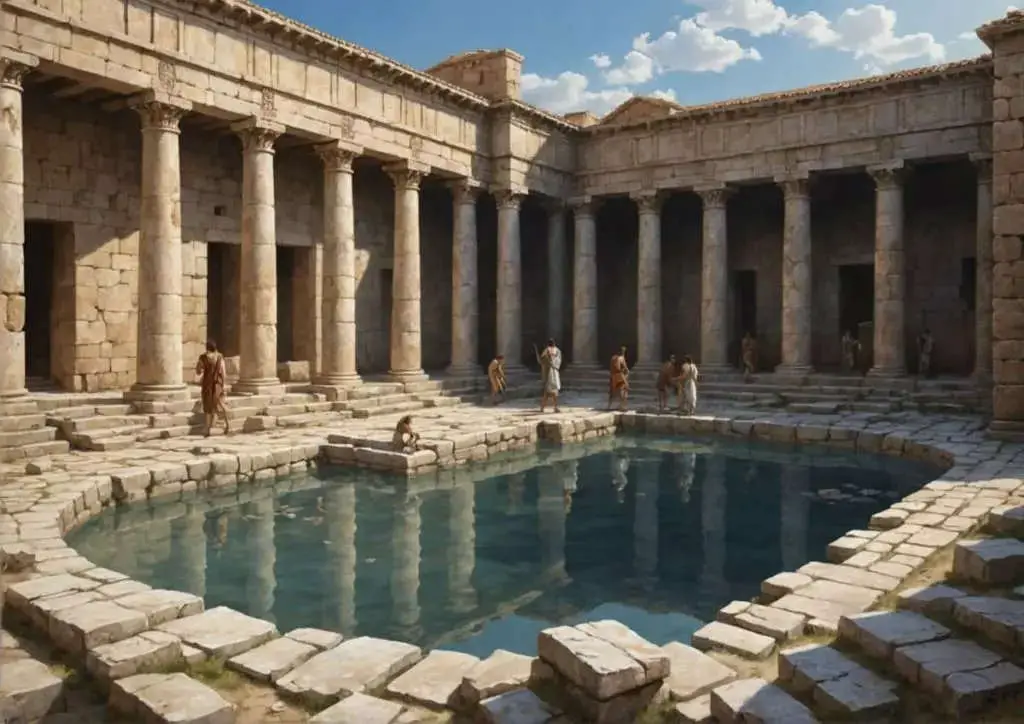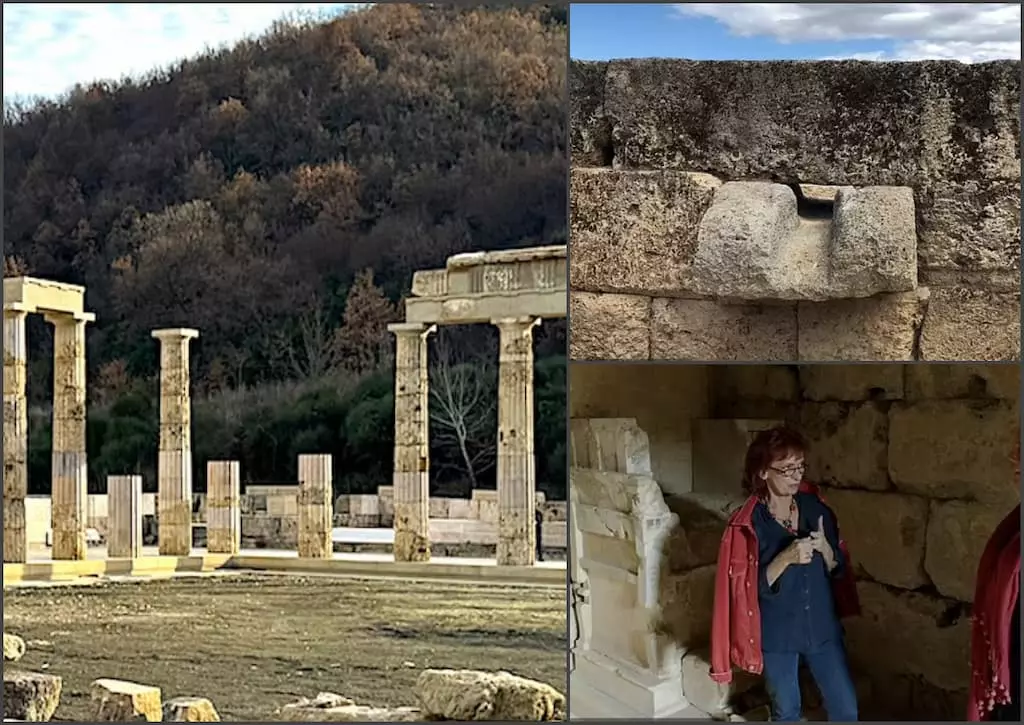In a historic revelation connecting the present to Macedonian antiquity, a team of archaeologists has discovered Alexander the Great’s personal bath. A peculiar discovery that brings a new dimension to our knowledge about the daily life of one of the most emblematic military and political leaders in history. The discovery took place in the ancient Aigai Palace, in the present-day city of Vergina, Greece. A region known for serving as the political and cultural heart of the ancient kingdom of Macedonia.

The Aigai Palace, which surpasses the famous Parthenon in size by covering an area of 15 hectares, was the scene of significant historical events. Such as the assassination of King Philip II and the rise to power of his son Alexander. Within this architectural complex, experts managed to restore and preserve elements such as detailed mosaics and marble floors. And all thanks to a meticulous restoration project that began 16 years ago and adds up to an investment of 20 million euros.
The Bath of Alexander the Great.
Recent exploration of this historic site revealed not only the bath, but also a palaestra. An intimate enclosure where Alexander and his companions, including his close friend and later military commander Hephaestion, immersed themselves in purification rituals. These spaces were places of social interaction and physical preparation, fundamental in the lives of the young aristocrats of the time.
Historian and presenter Bettany Hughes, during the closing episode of the series “Hidden Treasures“, accompanied the archaeologists on their tour of these newly discovered spaces. Hughes shared his excitement as he contemplated the drainage carved into the stone and the design of the communal bathroom. He imagined Alexander the Great and his peers participating in what he described as “enchanting homoerotic baths,” a reflection of the customs and rituals of the time.
The find not only sheds light on the intimate aspects of Alexander’s life, it also offers a glimpse into the practices and culture of the ancient Macedonian kingdom. Today, archaeologists continue to explore other areas of the palace, providing more clues about the daily lives and customs of those who inhabited this important political and cultural center.

The legacy of Alexander the Great.
Alexander the Great’s legacy extends far beyond battles and conquests. Even today, his influence can be seen in the expansion of knowledge, culture, and politics that prevailed during his time. Educated by the philosopher Aristotle, Alexander adopted practices and thoughts that he would carry with him throughout his journey from Macedonia to northern India.
Moreover, this archaeological site is not only revealing secrets related to Alexander the Great. Historians also explored his sister’s tomb, Thessaloniki, providing a deeper understanding of the tradition and dynastic cult in Macedonia. These types of archaeological finds are critical not only for experts in history and archaeology, but also for the general public.
For this kind of information awakens interest and awareness of the richness and depth of world history and the connections we can draw with the present.

Comments